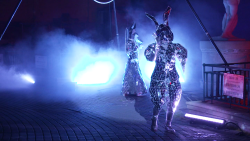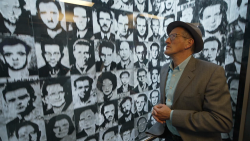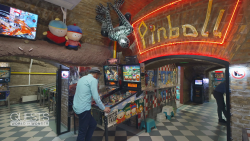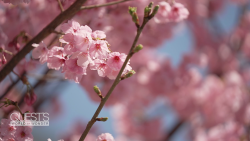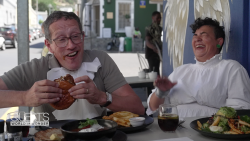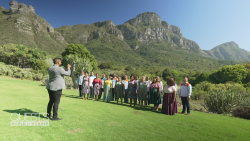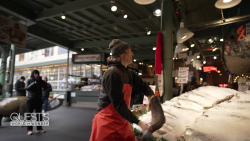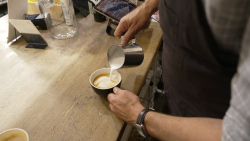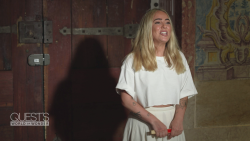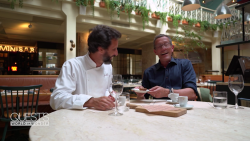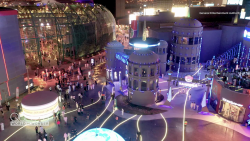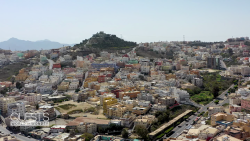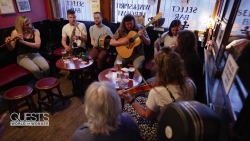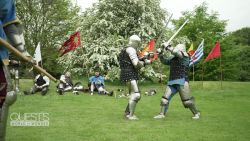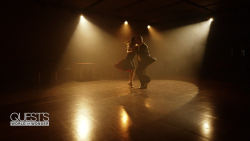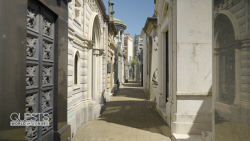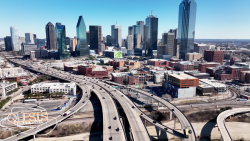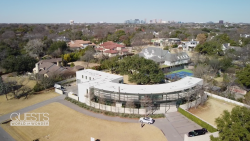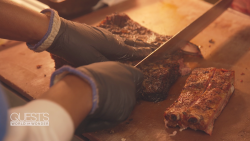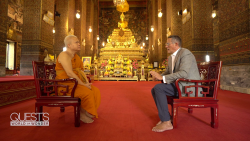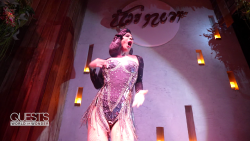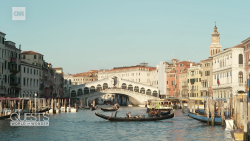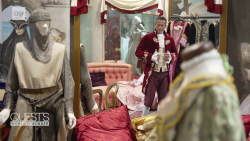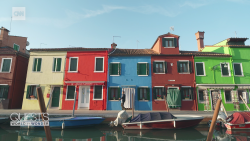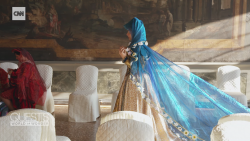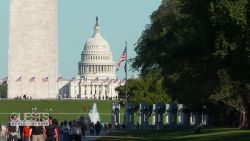With a past dating back to Roman times, London is widely known as the home of ritual, royalty, elitism and elegance.
But beneath the layers of history and grandeur lies a multifaceted destination brimming with diversity and individuality.
More than 300 languages are spoken in the capital, and one in three Londoners were born outside the UK (with one in four born outside of Europe.)
“London is an extraordinary city, because it is such a melting pot. There are people from all over the world that make this city their home, and everybody is welcome,” London born actress Naomie Harris, who starred in Bond movies “Skyfall” and Spectre,” tells CNN.
“It’s an incredibly diverse city. I love the energy of it.”
Breaking down barriers
While this cultural mix hasn’t always been reflected on the main stage, it was proudly on display at the wedding of the UK’s Prince Harry and US actress Meghan Markle, now the Duchess of Sussex, in May 2018.
One of the most notable moments from the ceremony, besides a rousing sermon from Bishop Michael Curry, was a rendition of Ben E. King’s “Stand By Me” by Kingdom Choir.
“I felt that there was a coming together of communities,” says Karen Gibson, founder and conductor of the London gospel choir, says of the performance, which was watched by a estimated two billion around the world.
As a child of the Windrush generation – Caribbean immigrants invited to move to the UK by the British government to help with rebuilding after World War II – Gibson’s invitation to perform before the Queen was a clear sign of how far the city has come in breaking down its traditional class systems and embracing its diverse population.
“This 4-year-old child, when she saw us on TV she said, ‘Look mommy, they look like me,’ she adds. “The exclusion is not what it was.”
The performance was a historic moment, as was the addition of Markle, a biracial American, to the British Royal family, where tradition is a fundamental part of everyday life.
For while aristocrats are now a dying breed in the city, the Royals still have a huge amount of clout.
Magnet for rich people
“There’s only one grand family that matters in this town, and that is the monarchy,” Peter York, a cultural commentator and co-author of the 1980s book “The Official Sloane Ranger Handbook,” tells CNN.
“The old world, the pre-war world of dukes and earls with grand houses in central London has utterly gone.
“At the very center of London, the rich people come from everywhere. It couldn’t be more international.”
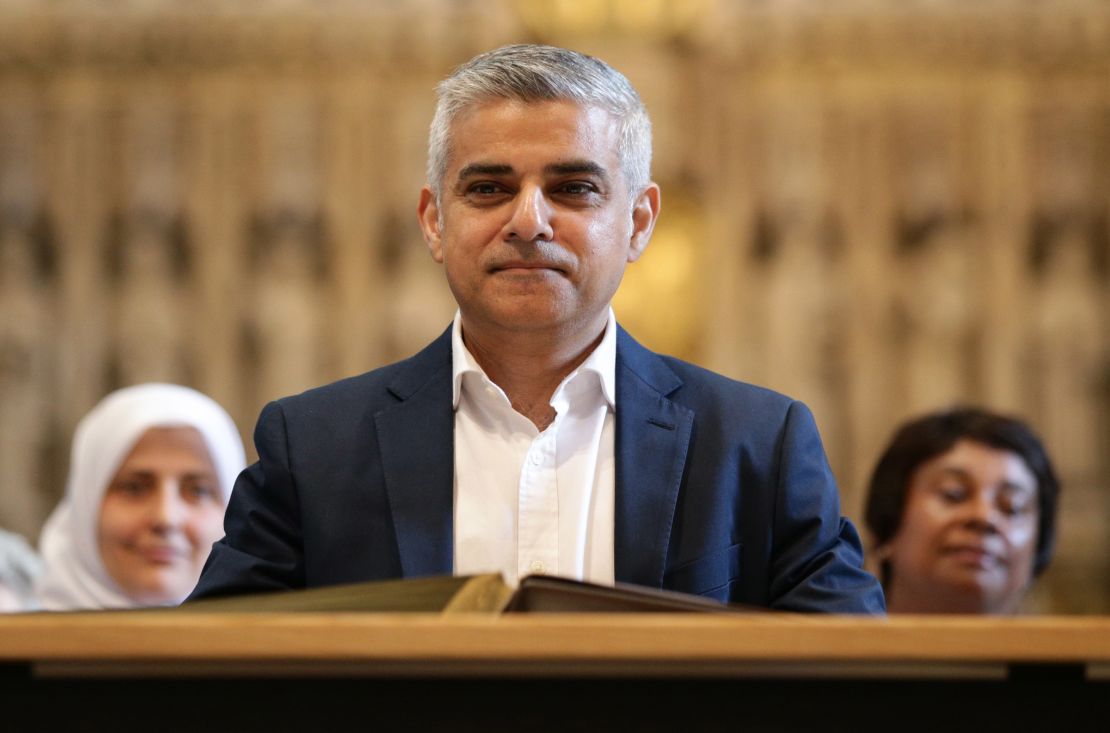
Encompassing more than 270 nationalities, there’s no doubt that London is a truly global city.
It became the first major Western city to elect a Muslim mayor, Sadiq Khan, in 2016.
But while diversity is one of its strengths, the city also has its fair share of challenges.
For instance, the deprivation gap is increasing here, while inequality in income, employment and quality of life is also on the rise.
This means London is home to some of the UK’s poorest citizens as well as its richest.
Although this clash of cultures has helped to create enrichment and innovation, it’s also led to tension and division in some sections of the city.
Quite literally crossing this divide is youth theater group Intermission, a project that sees 16 to 25-year-olds from some of the city’s most disadvantaged neighborhoods get together to perform the works of William Shakespeare in a church next to luxury department store Harrods in London’s Knightsbridge.
Founded in 2008 by ex-offender Darren Raymond, who discovered the playwright while serving time in prison, Intermission aims to inspire and engage vulnerable young people considered at risk of committing crime or reoffending.
“Drama is incredibly powerful, because it gives people an opportunity, especially young people who are not encouraged to voice their feelings,” explains Harris, who acts as a patron for Intermission.
“It gives them a platform to express themselves in a way that’s safe, where they feel nurtured.”
Shakespearean knife crime
Raymond helps the young people who come here connect with Shakespeare by reframing the words in language they can relate to, drawing parallels between the writer’s classic plays and modern issues such as knife crime, which rose to its highest ever level in London in 2018.
“To me, Julius Caesar is the ultimate knife crime [story],” he says. “He gets stabbed to death by conspirators, and we see a lot of that in the inner cities.”
While London still has a way to go in bridging some of its cultural gaps, Raymond feels that staging projects like this in the city’s richest areas is a step in the right direction.
“These people [the group] are from all over London, but we come to Knightsbridge, which is a very affluent area, and are able to be ourselves,” he adds.
“When two worlds meet, beautiful things happen. We are in this world together, regardless of our race, our background, or class. We need to start breaking down these stereotypes.”
Of course, London’s diversity goes far beyond race and class.
‘Night flowers’
Damien Frost's photos of 'night flowers'
From the mods of the 1960s, to the punk scene of the ’70s, to ‘80s goth culture, the city has long been a breeding ground for the subversive.
One of the capital’s latest underground movements comes in the form of a group of men and women who frequent the streets of Soho in the early hours of the morning dressed in outlandish drag, complete with intricate headpieces and stage makeup.
Dubbed the “night flowers” by photographer Damien Frost, who spent a year capturing them on camera, they lurk in the shadows, coming out to “bloom” when the sun goes down.
“It’s a total expressionist movement,” an unnamed night flower explains.
“You can call it drag, but there could be many names given to it. It’s not necessarily female or male.”
While the night flowers are from all different parts of the country, the vibrant environment of London is where they come to life, allowing what they describe as “imagined versions of themselves” to exist in the real world.
“London has always had eccentrics,” explains Frost. “I guess this is an extension of that. A lot of the people that do this come from smaller towns. They move to London, and suddenly they can blossom.”
This group of extroverts join a long line of individuals who have relocated to London to “blossom.”
An average of 192,000 people a year moved to London from abroad between 2011 and 2015 and the capital’s population is predicted to reach 9.8 million by 2025.
This evolving city continues to attract people from all walks of life, largely thanks to its vivacity and inclusiveness.
Critics sometimes complain that London isn’t what it used to be, and they’re right, but for all the wrong reasons.
As this bustling metropolis is always at the forefront of change, pushing boundaries that other cities wouldn’t dare to touch.


